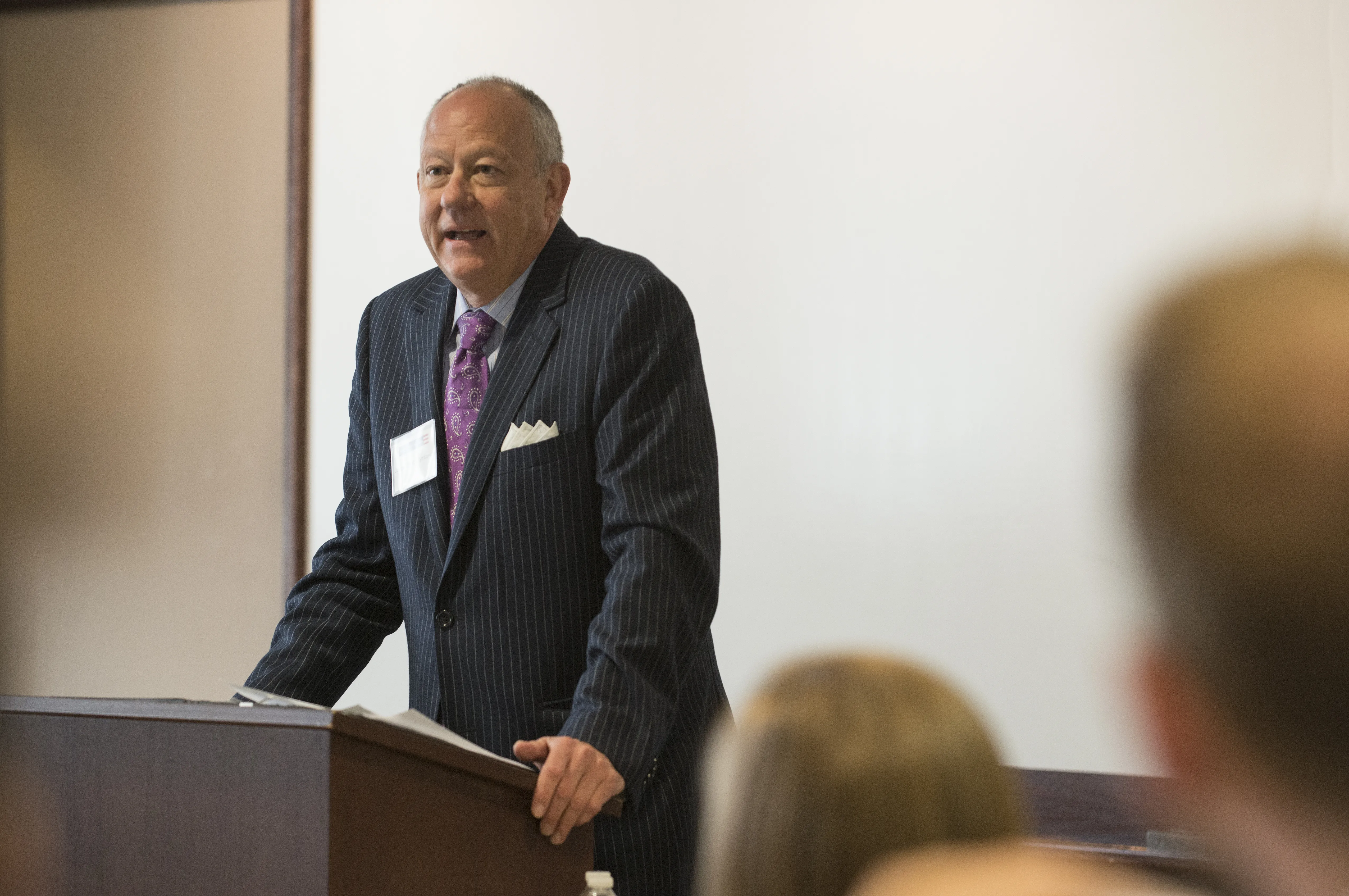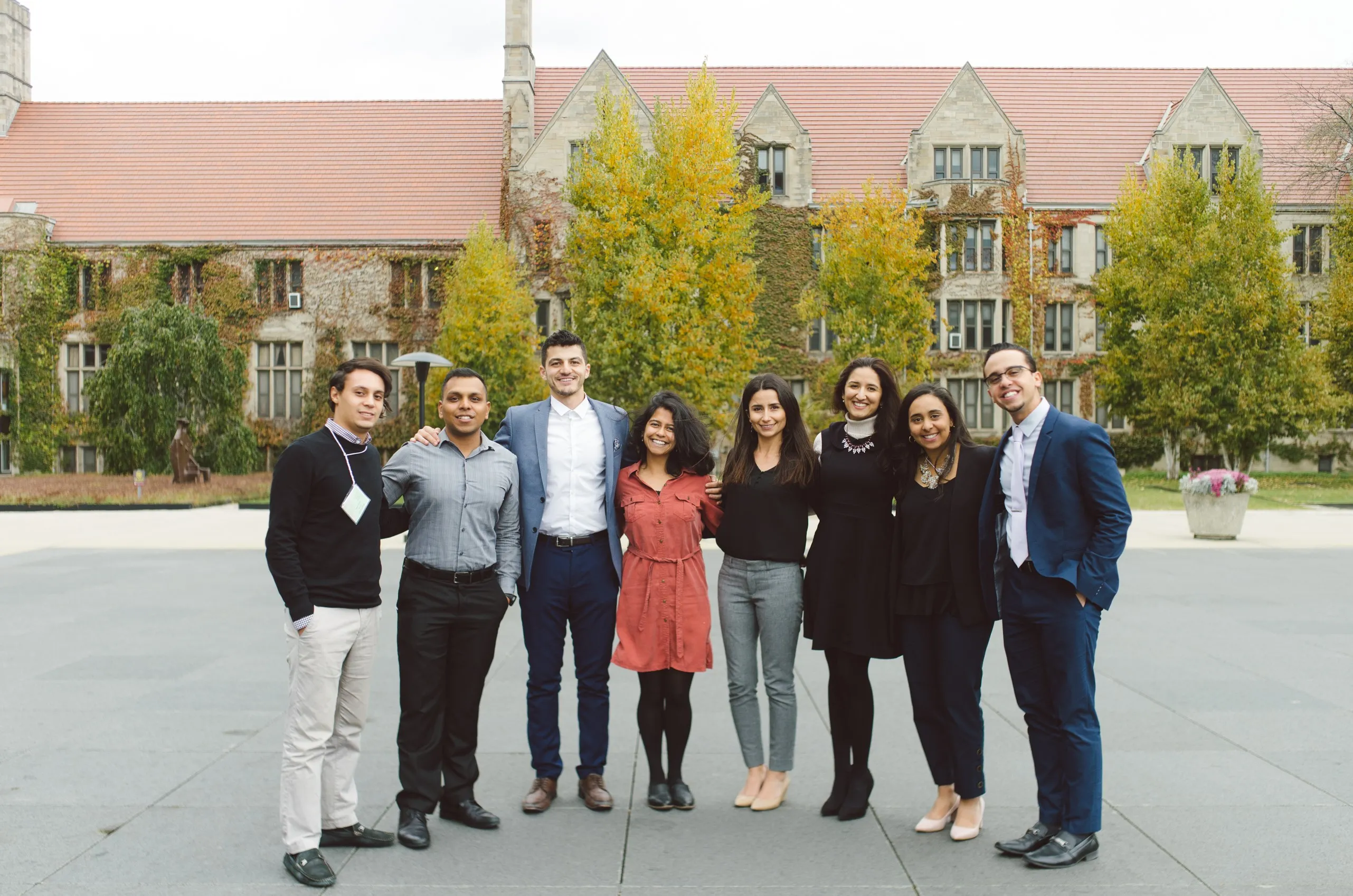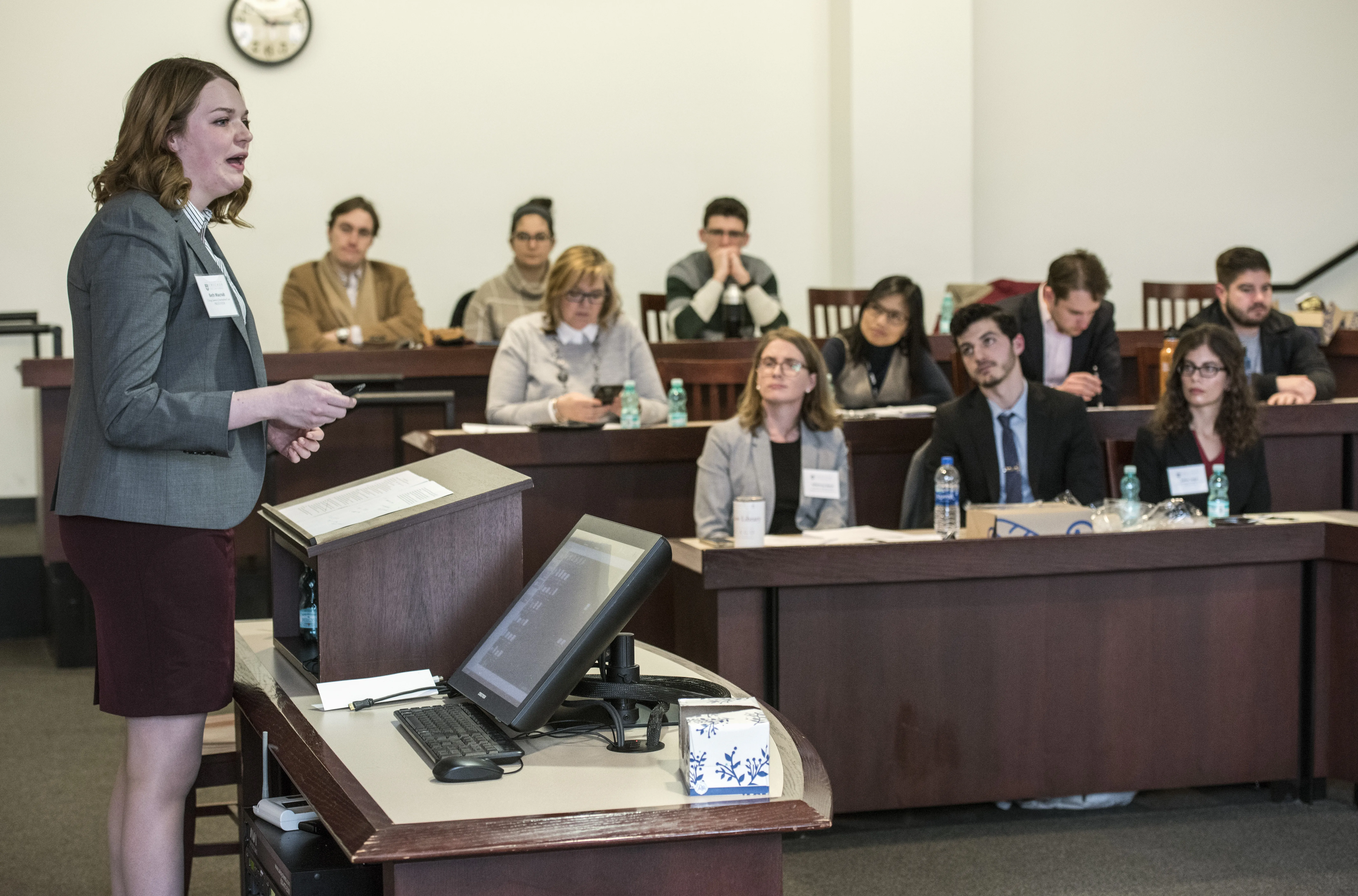Tymkovich Lecture: Civil Discourse Isn't Essential for Judicial Independence—But it Still Matters

If you think back to Constitutional Law class, you may recall Romer v. Evans, the landmark 1994 US Supreme Court case that voided a Colorado constitutional amendment preventing protected status based on sexual orientation. But you may not recall that, before reaching the highest court in the land, Romer came up through Colorado state courts—not the federal system.
Litigating on behalf of the state of Colorado was Solicitor General Timothy Tymkovich, who is now Chief Judge of the United States Court of Appeals for the Tenth Circuit.
“Some of the most important issues of the day will be litigated in the state courts, and people sometimes overlook that,” Tymkovich said in the Law School’s final Edward H. Levi Distinguished Jurist Program talk of the year. Romer, the judge said, is an “example in action” of not only federalism, but also separation of powers.
“Although many of the voters who voted in favor of the amendment were disappointed about the outcome of the case, I think the litigation through our state courts . . . demonstrated the checks and balances of the law-making branches and the role of the judicial branch,” he said. Despite controversy over the decision, the judge observed, it was applied and obeyed without issue.
In his talk, “Judicial Independence From Jay to Roberts,” Tymkovich focused on the importance of judicial independence and civil discourse. For both, he stressed, the current “energetic” political climate presents a challenge.
Take US Supreme Court Justice Neil Gorsuch’s recent Senate confirmation hearings, during which one senator claimed that the then-nominee’s “rigid ideology . . . always puts the little guy under the boot of corporations,” and another questioned whether Gorsuch has a “beating heart.”
Tymkovich admitted he might have winced a few times watching his former colleague on the Tenth Circuit endure hostile questioning. “As somebody who’s had a personal relationship and been friends [with Justice Gorsuch] for 25 years, it was kind of hard for me to square with the person I know,” he said.
Or take what Tymkovich described as an increasing polarization of voters.
“Even open, respectful conversation about political and social issues is—at least among those who disagree—becoming more difficult and fraught with controversy,” he said. “And with the social media and Internet, it has become easier to retreat into comfortable spaces where we reinforce our own views, rather than questioning what we believe and remaining open to changing our minds.”
But Tymkovich is optimistic that judicial independence will weather the present political storm, just as it has countless attacks on the judiciary throughout American history. He recalled that congressional comments were similarly scathing during Justice Sonia Sotomayor’s confirmation, and that Justice Samuel Alito’s wife left partway through her husband’s hearings in tears. President Thomas Jefferson and Chief Justice John Marshall openly disliked one another, President Abraham Lincoln questioned the Supreme Court’s authority, and President Franklin D. Roosevelt proposed a court-packing plan. Recently, a slew of Tenth Circuit cases on topics ranging from contraception to immigration have attracted strong criticism. Through it all, judges have not hesitated to enforce checks on the Congress and the President.
For that we have the Founding Fathers of our country to thank, the judge said.
“Our independent judiciary, of course, is a product of the founders’ vision and the protections they put in place to insulate judges from the caprices and pressures of partisan politics," he said. "I think our current climate is a kind of example of how these protections are once again tested. But I think there’s plenty of reason to be hopeful that the vitality of the independence of the third branch remains.”
Respectful communication should still be the goal, however, Tymkovich emphasized. He described the culture of collegiality among judges on the Tenth Circuit. The judges of varying viewpoints and judicial philosophies circulate their proposed opinions to every member of the court before final publication, and Tymkovich is regularly impressed by both the reading judges’ respectful constructive criticism and the authoring judges’ willingness to take feedback into account.
“You can disagree without being disagreeable,” Tymkovich said.
He also cited the fact that four judges on the Tenth Circuit, all of whom were appointed by President Obama, sent Justice Gorsuch a gift basket for his confirmation hearings.
“[Justice Gorsuch] went out of his way to remark how touched he was by that show of support . . . It may seem a like a small thing, but those gestures can go a long way in fostering and maintaining a collegial court,” Tymkovich said.
Students in the audience appreciated Tymkovich’s discussion of comity.
“Because the Supreme Court only takes 80 cases a year, having judges on the circuits who get along and can work together for 25 years is vital,” said Dan Simon, a fourth-year at the College who has made a point of crossing the Midway for a number of Edward H. Levi Distinguished Jurist Program talks.
James Kilcup, ’17, agreed: “It was a really great reminder of the importance of concrete relationships for making institutions work well.”


